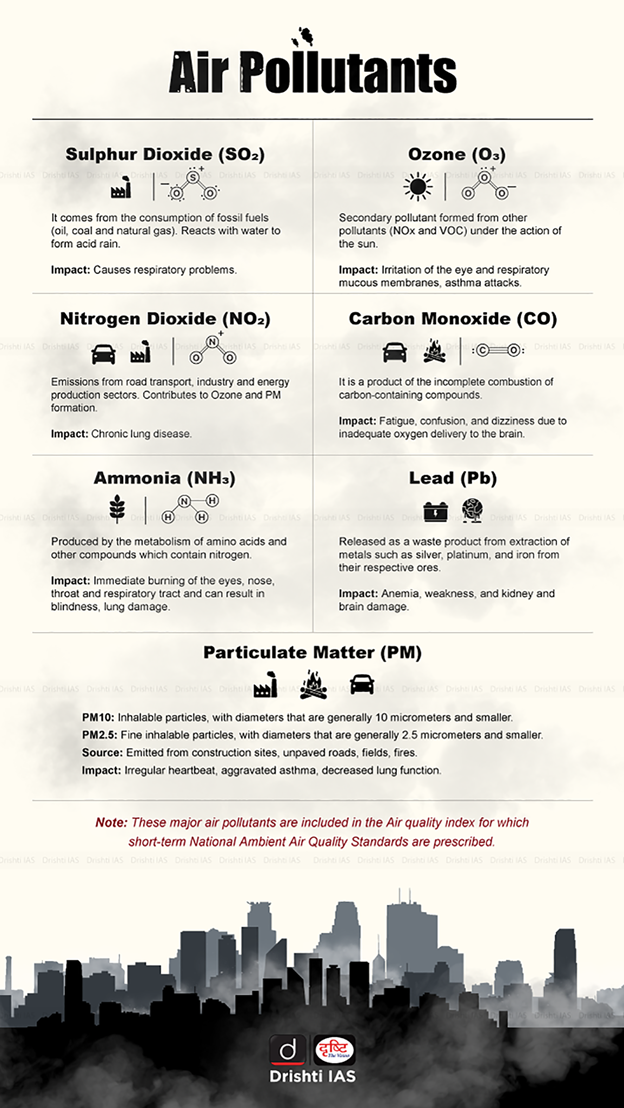Rapid Fire
India’s Progress Under NCAP
- 10 Jan 2025
- 2 min read
India achieved a 26.84% reduction in nationwide Particulate Matter (PM) levels from 2019 to 2024, with National Clean Air Programme (NCAP) cities showing a 24.45% improvement due to targeted interventions.
- Top Performers: Varanasi led with a 76.4% reduction in pollution, followed by Moradabad (58%) and Kanpur (51.2%).
- Among the major cities, Kolkata saw a 21.5% reduction in pollution, driven by stricter industrial regulations and improved public transport.
- Southern and western cities, like Bengaluru (8%) and Chennai (9.2%), steadily reduced pollution levels.
- Challenges: Cities like Delhi (PM 2.5 at 107 µg/m³) and Byrnihat in Assam (PM 2.5 at 127.3 µg/m³) remain the most polluted cities.
- Cities like Gurugram, Faridabad, and Ghaziabad require urgent interventions.
- Key Contributors: Industrial emissions, vehicular pollution, and stubble burning exacerbate pollution in northern states.
- NCAP: Launched in January 2019 by the Ministry of Environment, Forest and Climate Change (MoEFCC), aims to reduce PM10 and PM2.5 levels by 20% by 2024-25, with 2017 as the baseline.
- The target has been revised to 40% reduction in PM10 levels or meeting national standards (60 µg/m³) by 2025-26.
Read more: Advancing Air Pollution Control in India





